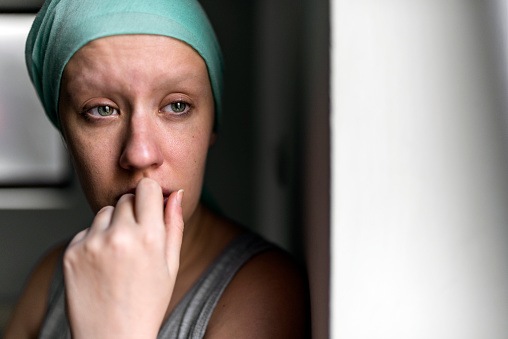
Cancer patients who are unmarried are less likely to receive potentially life-saving surgery and radiotherapy, according to a University of Delaware professor who published a peer-reviewed article in The New England Journal of Medicine.
The author, Joan DelFattore, a professor emerita of English, examined 84 medical articles from the National Cancer Institute (NCI) database that showed that single patients are considerably less likely to receive surgery or radiotherapy if they are without a spouse. She also drew on her own personal experience, being an unmarried woman who in 2011 was diagnosed in with advanced gallbladder cancer. Prof. Delfattore relied on her network of friends, colleagues, neighbors and extended family to support her cancer battle.
Speaking from Experience
Prof. Delfattore recounted that her surgeon at Memorial Sloan Kettering Cancer Center accepted her description of her friend-based support network without question. However, after receiving post-surgery chemotherapy, another physician inquired about her marital status and dwelled on that subject. Subsequently, the second oncologist recommended a milder course of treatment that Prof. Delfattore realized was not the most effective. She wrote that: “He wouldn’t risk serious side effects [of the more aggressive treatment] with, as he put it, ‘someone in your situation,’” she writes. Those false assumptions, which Prof. Delfattore feels is unfair stereotyping, prompted her to change doctors. She was then administered the more aggressive, and effective chemotherapy by an oncologist who accepted that she possessed the necessary support system.
In the journal, Prof. DelFattore voiced her concerns that physicians may rely on research data that fail to paint an accurate picture about unmarried people in the US. “Even if medical researchers mean to recommend what’s best for patients, as they presumably do, their reliance on stereotypes about unmarried adults is misleading, especially when they misinterpret sociological and psychological studies that do not, in fact, support those stereotypes,” she continued.
Physicians Should ‘Examine Assumptions’
Unfortunately, this line of thinking is nothing new. Based on her review findings, it’s been known for over 30 years that cancer patients with a current spouse are more likely to get surgery or radiotherapy than those who are divorced, separated, widowed or never married. She hopes her article will spur a change in training and result in more physicians being trained to not stereotype people based on marital status.
Bias against single people affects their cancer treatment https://t.co/3hYGTabA25
— Zyite (@ZyiteGadgets) September 9, 2019
“I’m not writing about this and advocating for change out of anger or outrage,” she added. “It’s not about blame. It’s about asking people to examine their assumptions–in this case, with respect to potentially life-or-death decisions. Medicine has to evolve, not only in science and technology, but also with respect to an evolving society.”
Bias against single people affects their cancer treatment https://t.co/H8N7792H85
— Anthony M Magliocco MD (@MaglioccoTony) September 9, 2019
Bias against single people affects their #cancer treatment
New #research reveals dangerous bias Unmarried patients with cancer less likely to get life-saving surgery or radiotherapy than their married counterparts #Oncology https://t.co/YavnlMUdze pic.twitter.com/5nAV0UrZik— Nisus Medical 💙♻️ (@nisusmedical) September 10, 2019






 © 2025 Mashup Media, LLC, a Formedics Property. All Rights Reserved.
© 2025 Mashup Media, LLC, a Formedics Property. All Rights Reserved.